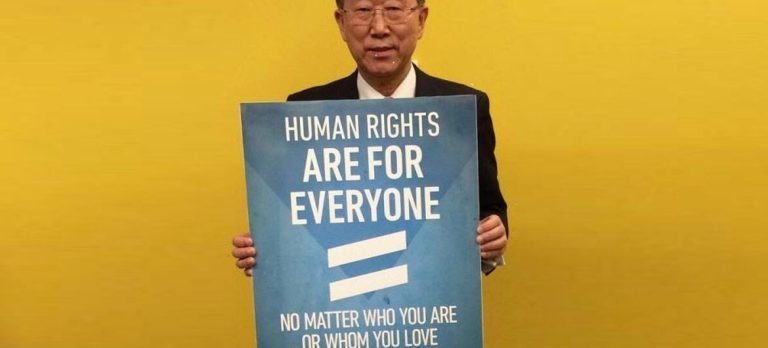
In some places, LGBTQIA+ people could face the death penalty because of their identity, leaving them highly vulnerable to human rights violations and with limited access to health services. And many political leaders are using polarizing policies and harmful rhetoric.
New York, N.Y. — The International Day Against Homophobia, Biphobia and Transphobia is observed on May 17th and aims to coordinate international events that raise awareness of LGBTQ+ rights violations and stimulate interest in LGBTQ+ rights work worldwide. By 2016, the commemorations had taken place in over 130 countries.
The world is seeing hard-won progress in protecting the rights of lesbian, gay, bisexual, transgender, queer, intersex and asexual people – but there is still a long road ahead.

To spotlight the advances and challenges, the theme of the International Day Against Homophobia, Transphobia and Biphobia this year is: “No one left behind: Equality, freedom, and justice for all.”
Among the recent advances: Social and legal norms have shifted away from criminalizing LGBTQIA+ people and towards safeguarding their rights. Since 2019, 11 countries have legalized marriage equality. Since 2017, 13 countries have removed laws criminalizing LGBTQIA+ sexuality.
Further, policies protecting the rights of sexual and gender minorities are gaining ground at every level. In recent months, United Nations bodies have called for transgender-friendly HIV care, protection of the rights of intersex people, and an end to discrimination against LGBTQIA+ people in health services.
These shifts have empowered LGBTQIA+ people and spurred health systems to improve access to sensitive and stigma-free care.
Yet despite the progress, discrimination and social stigma remain, leading to serious health disparities and other inequities. Dozens of countries still criminalize consensual same-sex relationships.
In some places, LGBTQIA+ people could face the death penalty because of their identity, leaving them highly vulnerable to human rights violations and with limited access to health services. And many political leaders are using polarizing policies and harmful rhetoric.
All of this leaves LGBTQIA+ people more likely to be forced to confront poverty, violence, and other forms of marginalization. In times of humanitarian emergencies, such as climate crises, the inequities deepen. The consequences can be life threatening, leading to struggles to obtain shelter and disaster relief due to discrimination and neglect.
In honor of the international day, United Nations Population Fund (UNFPA) is calling for the integration of LGBTQI+ rights and sexual and reproductive health and rights in global humanitarian and climate-resilience policies.

UNFPA stands for the rights and choices of everyone, everywhere. “LGBTQIA+ people deserve full enjoyment of their equal rights just like all others,” UNFPA Executive Director Dr. Natalia Kanem says.
“Yet despite progress in many parts of the world, they often still suffer from severe discrimination and stigma. This is wrong. During conflicts and crises, their rights may be overlooked and their unique needs for protection and health care can go unmet.
“To truly leave no one behind means safeguarding the rights of LGBTQIA+ people in all settings and including them fully in humanitarian preparedness, response, relief and recovery efforts.”
International Day Against Homophobia and Transphobia (May 17, 2024)